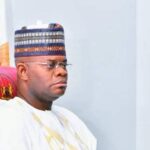Senate Bill to Establish National Drug Insti
A Senate bill proposing the establishment of a National Institute on Drugs Awareness and Rehabilitation has triggered heated debate, with key government agencies opposing the initiative over concerns of duplication and resource inefficiency.
The bill, sponsored by Senator Rufai Hanga, was the subject of a public hearing on Wednesday organised by the Senate Committee on Drugs and Narcotics. The session attracted representatives from federal ministries, security agencies, and civil society groups.
Advocates of the bill say it would create a dedicated institution to tackle Nigeria’s rising drug abuse crisis by focusing on public education, rehabilitation, and reintegration efforts. Senator Hanga described the proposal as filling a “gaping hole” in the nation’s drug strategy, which he said is currently skewed toward enforcement.
“Our current approach is overly focused on interdiction, while long-term rehabilitation and public awareness lack adequate attention,” he said.
Senator Ned Nwoko (Delta North), who had previously introduced a similar bill to establish the National Centre for Substance Abuse Management (NCSAM) in Kwale, Delta State, also threw his support behind the initiative. He cited growing grassroots concern in his constituency, where students submitted a draft version of the proposal.
However, the National Drug Law Enforcement Agency (NDLEA) and the Federal Ministry of Justice led a strong opposition to the bill, warning that the proposed institute would replicate existing efforts and drain public resources.
“All the functions outlined in the bill—awareness campaigns, school sensitisation, rehabilitation, and research—are already being implemented by the NDLEA in partnership with the Ministry of Health,” the NDLEA stated in its position paper.
The agency stressed that it already operates rehabilitation centres and training institutions nationwide and called for improved funding and capacity for existing structures rather than the creation of new ones.
The Ministry of Justice echoed this stance, noting that the NDLEA aligns with global standards outlined in the 1988 UN Convention on Psychotropic Substances, which advocates for a multidisciplinary approach. It argued that strengthening the NDLEA and NAFDAC would be a more effective strategy.
The Federal Ministry of Health and Social Welfare also raised concerns, warning that creating a parallel agency could undermine years of policy development and inter-agency coordination. Instead, it recommended integrating drug treatment into state health insurance schemes and embedding drug education in school curricula.
Despite the resistance, several stakeholders supported the bill. The Nigerian Correctional Service (NCoS), which manages over 1,900 inmates undergoing drug-related rehabilitation, called for inclusion in the institute’s governance, citing its frontline role in offender recovery.
The Nigeria Customs Service also backed the proposal, pointing to the country’s limited mental health infrastructure. “With over 14.4% of Nigerians reportedly battling drug addiction and just 200 psychiatrists nationwide, the need for a specialised agency is urgent,” its submission stated.
The Federal Ministry of Women Affairs endorsed the bill and advocated for a gender-sensitive approach. It called for the inclusion of women on the institute’s board and rehabilitation programs tailored to the needs of women and children, who are disproportionately affected by addiction.
On the contrary, the National Agency for the Prohibition of Trafficking in Persons (NAPTIP) cautioned that establishing another agency could disrupt its coordination with the NDLEA, as drug abuse often overlaps with trafficking cases.
“Fragmenting service delivery may weaken existing partnerships and reduce overall efficiency,” NAPTIP warned.
Senator Ibrahim Dankwambo, Chair of the Senate Committee on Drugs and Narcotics, thanked participants for their input and promised that the committee would thoroughly evaluate the arguments presented.
“This hearing has demonstrated both the urgency of addressing drug abuse and the complexity of choosing the best strategy. Whether through a new body or strengthening existing institutions, our focus must be on impact, efficiency, and sustainability,” Dankwambo said.
The bill now proceeds to further legislative review and deliberation as the Senate weighs its options for enhancing Nigeria’s national drug response framework.









